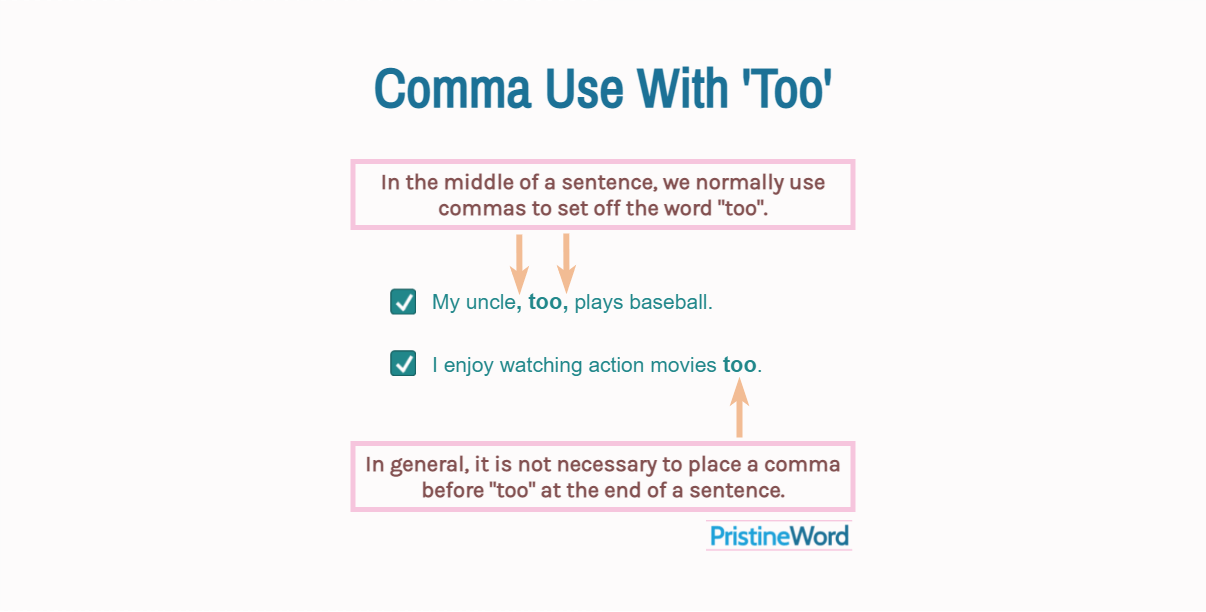In the middle of a sentence, we normally use commas to set off the word "too". It is not necessary to place a comma before "too" at the end of a sentence.
Although there are no clear-cut rules regarding the use of comma before and after "too" (when meaning "also" or "additionally"), the following guidelines will help you decide which option to choose.
In the middle of a sentence, we normally use commas to set off the word "too".
My uncle, too, plays baseball.
In general, it is not necessary to place a comma before "too" at the end of a sentence.
I enjoy watching action movies too.
1. 'Too' in Mid-sentence
We can use a comma before and after "too" in the middle of a sentence when interrupting the sentence flow or adding emphasis.
I, too, would like to run a marathon next year.
Some experts sustain that these commas should be mainly used to emphasize a change of thought.
❝ Use commas with too only when you want to emphasize an abrupt change of thought. ❞
Source: The Chicago Manual of Style.(1)
Others, however, recommend using commas in mid-sentence.
❝ Rule 6c. In general, use commas to set off the word too midsentence. However, it is usually not necessary to precede too with a comma at the end of a sentence. ❞
Source: Kaufman, Lester; Straus, Jane. The Blue Book of Grammar and Punctuation.(2)
When using "too" in mid-sentence, probably the safest choice is to add a comma before and after the word unless the sentence is very short, or you want to avoid emphasis. Whether you decide to add them or not, never skip a comma and leave the other.
My husband, too works out every day.
My husband, too, works out every day.
Other words and expressions that interrupt the sentence flow and should be set off by commas are "however", "on the other hand", "by the way", and "after all".
2. 'Too' at the end of a sentence
Normally, you do not need a comma before "too" at the end of a sentence.
I love you too.
Optionally, you can add a comma to add prominence or special importance to the word.
I would like to visit Sweden, too.
However, we usually drop the comma to sound more natural or denote continuation.
I like not only Chinese food but Thai cuisine too.
3. More Examples
- I want to win the lottery too.
- Olivia, too, believes that the indigestion was caused by the spicy food.
- I enjoy playing football, but I can play basketball too.
- James, too, wanted to join the team.
- The teacher was not only angry but wanted to speak to my parents too.
- Massachusetts, too, is one of the richest U.S. states by household income.
- I want to go the party too.
- Gas prices are rising too.
- They, too, could give a little of their time to help on a volunteer project.
- Can I participate in the process too?
4. References
(1) The Chicago Manual of Style (Q & A).
(2) Kaufman, Lester; Straus, Jane. The Blue Book of Grammar and Punctuation. Chapter 2 (punctuation).

